The Spanish government sent police in from across the country and, waiting on a cruise ship docked in Barcelona, are poised to intervene in an attempt to halt the referendum for Catalan independence, which is considered illegal by the nation's ruling Partido Popular and president Mariano Rajoy.
But many millions of Catalans are determined to vote for their future. A great number of those will vote against independence, but they still want and plan to vote. And a heavy-handed approach by the government is likely to lead to serious disturbances in the streets of Barcelona and other Catalan cities and towns.
Peaceful protests have taken place so far in Barcelona, but anarchists and left-wing radicals are expected to travel to the Catalan capital from all over Europe. Meanwhile, right-wing Spaniards sang fascist songs, used fascist salutes and waved fascist flags in central Madrid on Saturday.
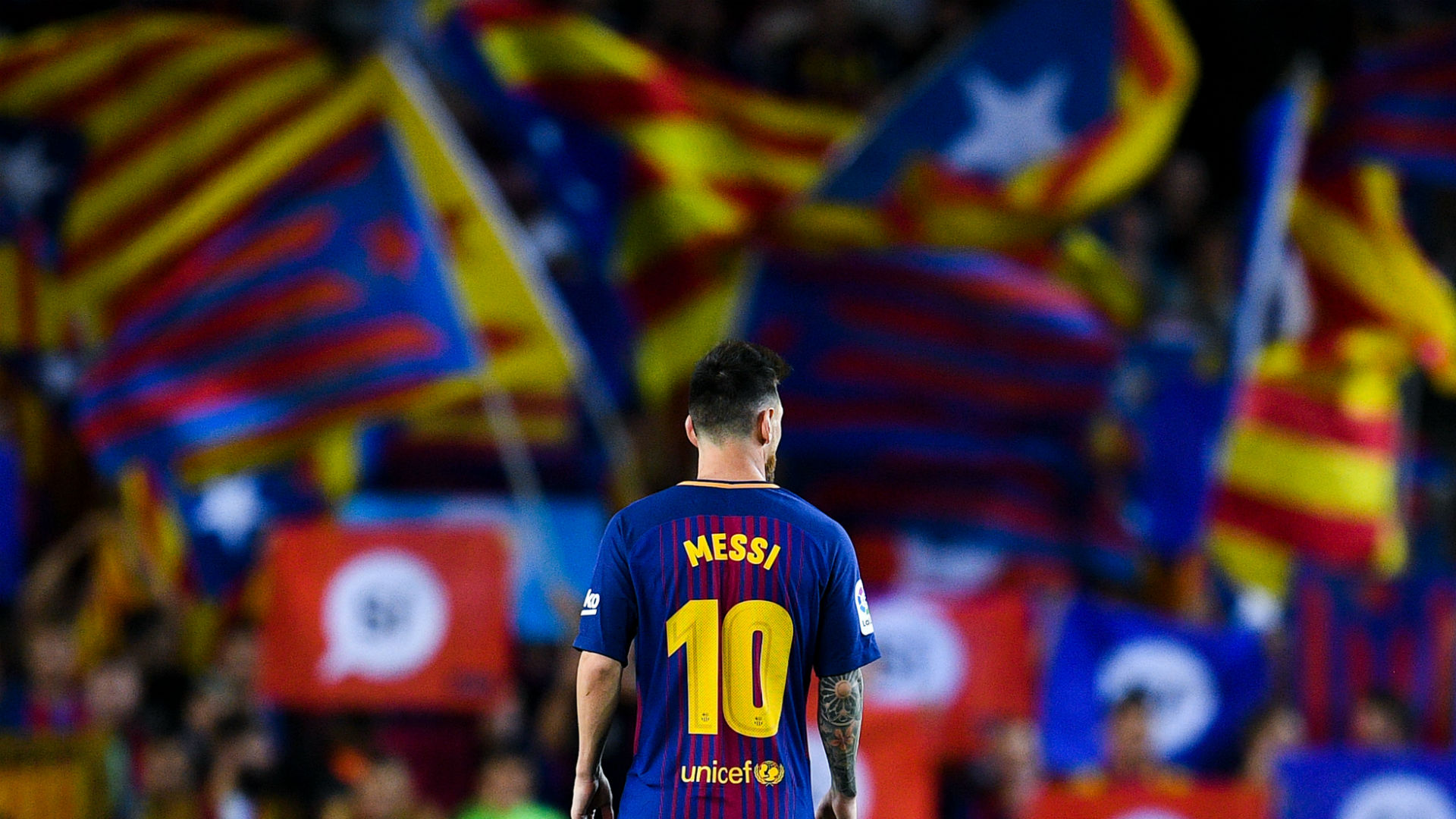
Quite how Catalunya and Spain can return to normal as a unified nation after all that is hard to imagine, whatever the result, and calls for dialogue over the past few days have arrived too late, and fallen on deaf ears.
Camp Nou, the only place where Catalans could speak their language and express themselves without fear of reprisals in the dictatorship of Francisco Franco, will host Barcelona's game at home to Las Palmas on Sunday in what will be a highly charged atmosphere.
In the 17th minute of every home match, thousands of Barca fans call for independence, and last weekend in the Catalan derby at Girona, both sets of supporters chanted in unity for secession from Spain. The minute marks the Siege of Barcelona in 1714, which saw the end of Catalunya as a principality and a political power.
More than 300 years have passed by since then, yet the desire for independence from Spain is perhaps stronger than ever. And all of the Catalan clubs apart from Espanyol (in action away to Real Madrid on Sunday) have come out to supports their citizens' right to vote this weekend.
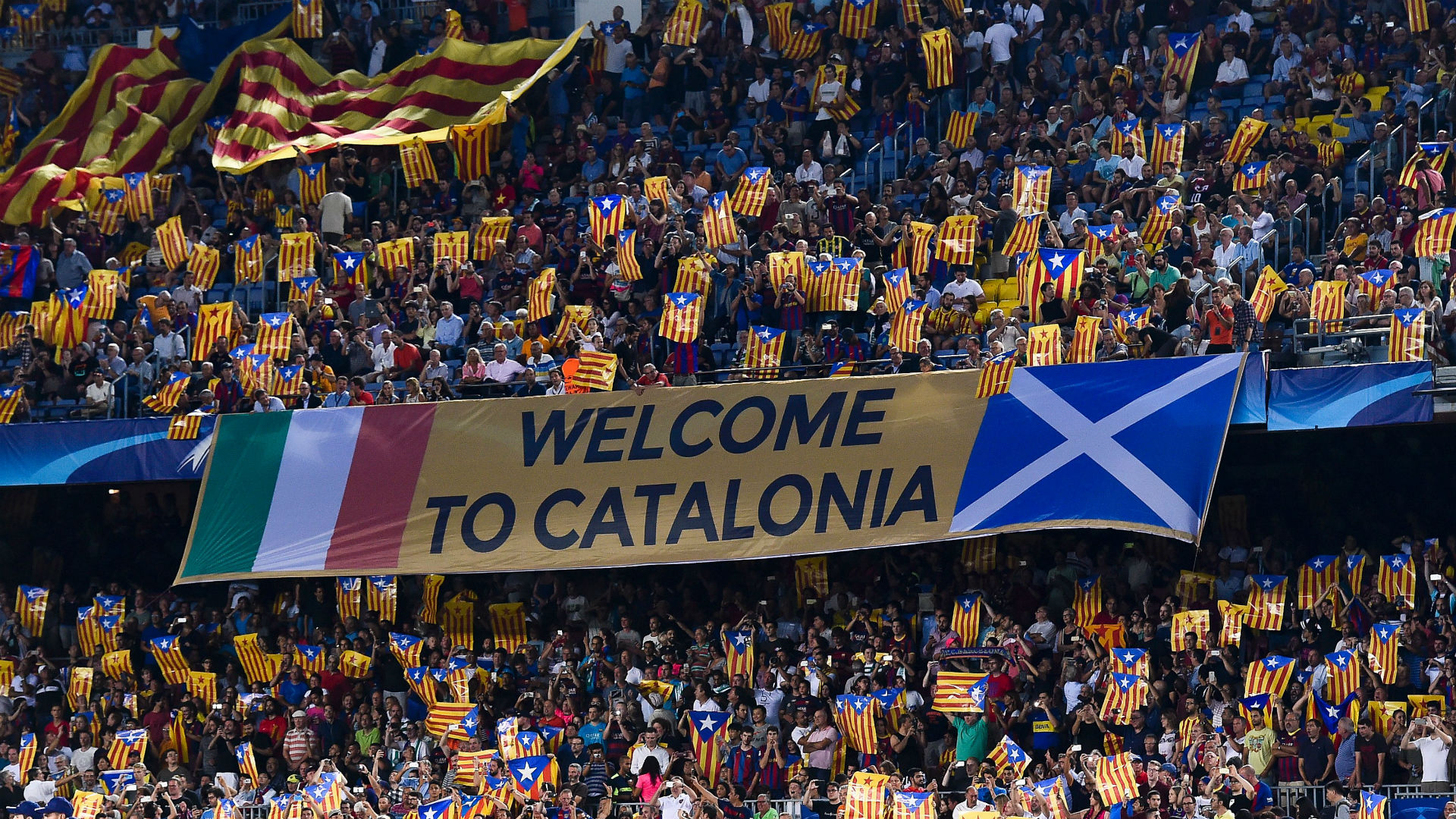
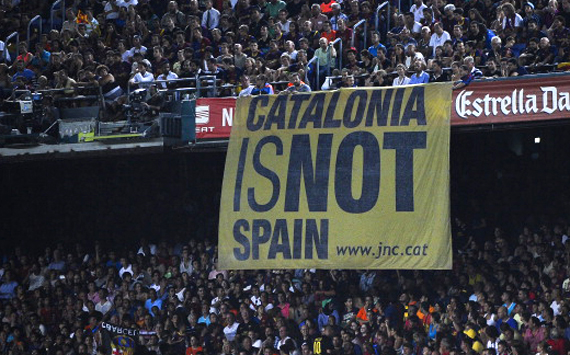
Barcelona fans from elsewhere in Spain have said they feel ostracised by the club's stance, while some Espanyol supporters are upset that their team is staying out of the debate. There is simply no way to please everybody in the region.
Former Barca defender Oleguer, now a politician in Catalunya, branded Spain a "militarised state" in an interview ahead of the referendum, while former president Joan Laporta has also called for independence. So too has Pep Guardiola.
Current players and directives at Camp Nou have remained more diplomatic, yet Barca did release a statement in favour of the vote and Gerard Pique urged Catalans to turn out in Sunday's ballot via his Twitter account. "Let's express ourselves peacefully," he wrote. "Let's not give them any excuse. That's what they want. Let's sing loud and strong. We will vote."
That provoked a reaction from Real Madrid's Sergio Ramos, his central defensive partner with Spain. "Pique's tweet is not the best thing if you don't want to be booed," he said, looking ahead to next week's international break and the games for La Roja against Albania and Israel.
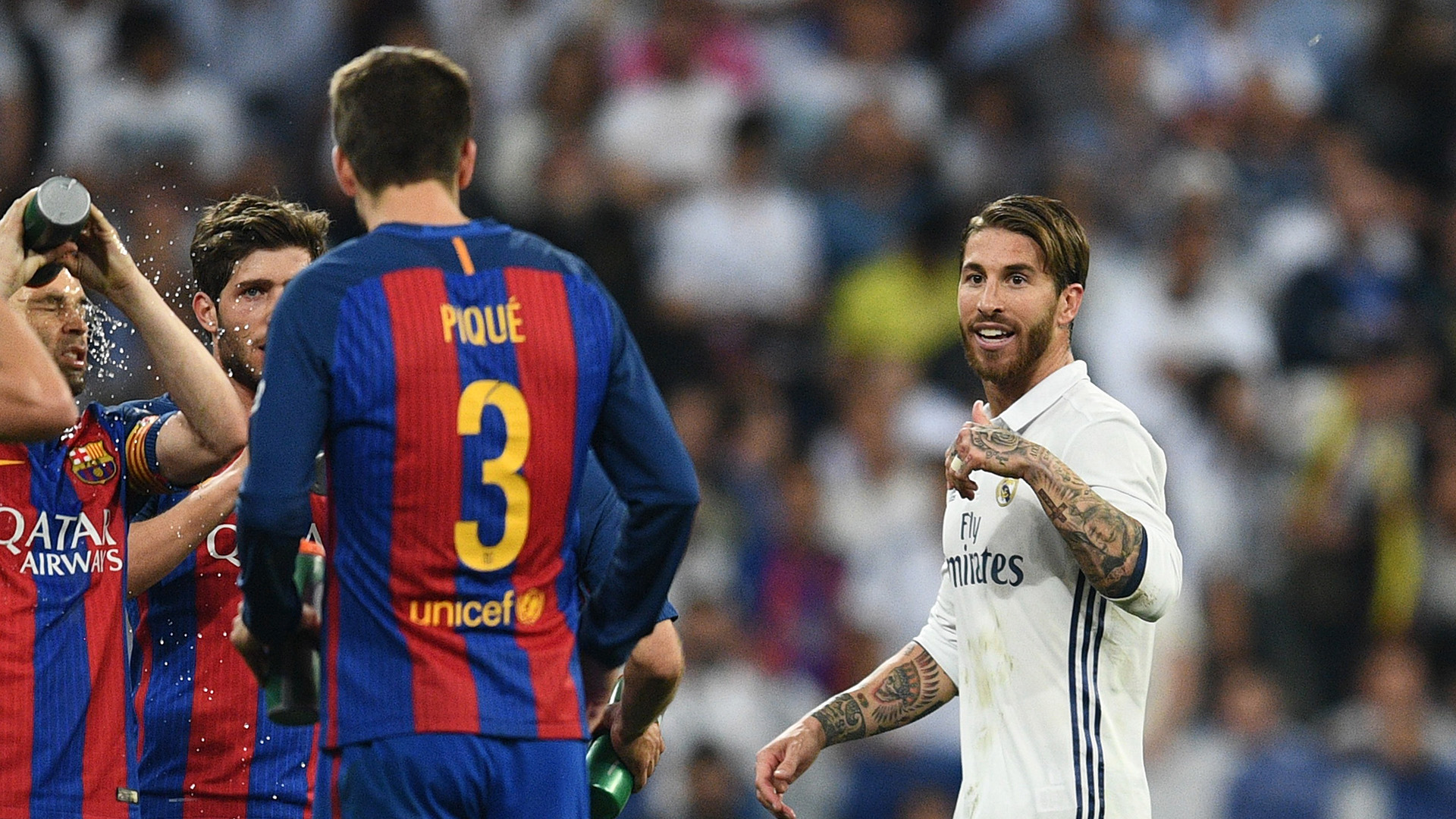
Spain coach Julen Lopetegui defended both players, seeking to play down the controversy as old wounds were reopened between Spain's two first-choice central defenders. And the whole independence debate is also stoking up the already-fierce Clasico rivalry.
Pique, of course, is a World Cup winner and European champion with Spain. However, if Catalunya does gain independence from Spain, the nation would have its own national team and there are already tentative plans to send a Catalan delegation (including a football team) to compete at the 2020 Olympics in Tokyo.
"If there is a victory for the 'Yes' campaign and the construction of a new state, we will start the process to have a delegation in Tokyo," Gerard Figueras, director general of sports in the Catalan parliament and ruling body said.
One of the questions that always arises is what will happen to Barcelona in an independent Catalunya. And while some have spoken of the possibility of the Blaugrana turning out in Ligue 1 or even the Premier League, the reality is that La Liga - and also Real Madrid - would be worse off without the Catalan club. Unless there is a European Super League, there is unlikely to be any change.
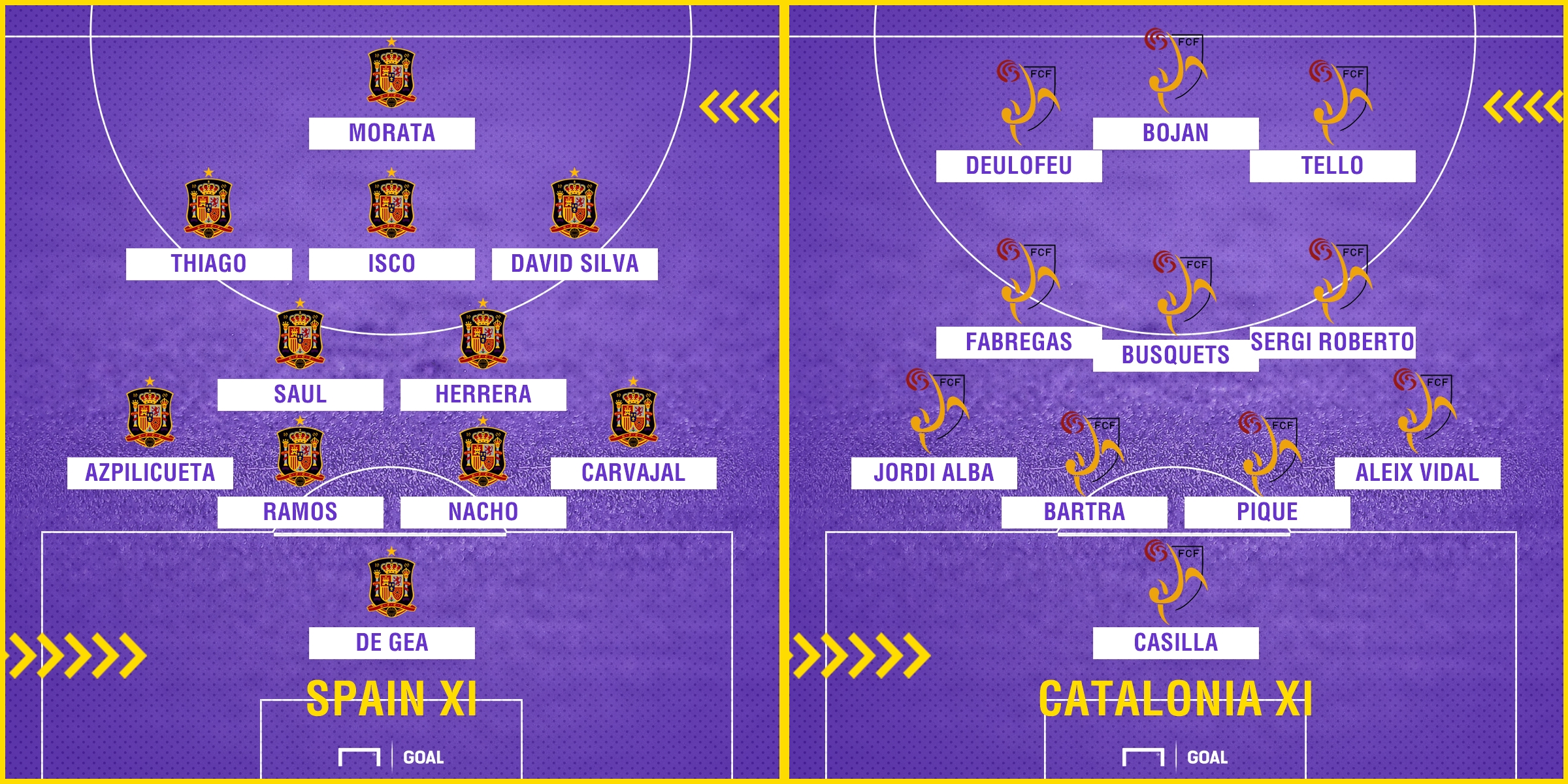
"I understand that an elite club like Barca or like Espanyol would maintain their prestige without a problem and that the sport could continue to develop its business and I think that it is in everyone's interest that the Catalan clubs and others can participate in the competitions as they have up until now," Oleguer said in the interview.
What is a hero without a villain anyway? Prior to Atletico Madrid's rise under Diego Simeone, La Liga was often compared to the Scottish league because of the dominance of its two top teams: Madrid and Barca. And if one of those were to leave, it would lose much of its appeal - just as the SPL did without Rangers in the top flight.
So even if independence does become a reality and whatever the political future of Catalunya and Castile, on the football field at least, Barcelona and Madrid are better off together.

No comments:
Post a Comment